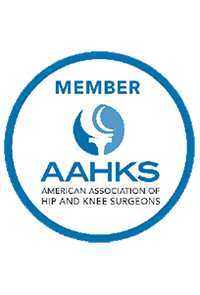Non-Operative Tennis Elbow – Lateral Epicondylitis Treatment
Treatments
There are several available treatments for tennis elbow. These usually start off conservatively, and work to more involved treatments. Nonoperative treatment is successful in over 90% of patients.
Lifestyle Modification
Lifestyle modification is important if tennis elbow does not resolve or if it recurs. With athletes, often an improvement in technique (see below) can resolve the problem.
Changing Stroke Mechanics and Racquet
Tennis racquets should be sized properly, including grip size. Higher stringing tensions may contribute to tennis elbow. Playing on harder surfaces also increases the risk of developing tennis elbow. Stroke mechanics should be evaluated to ensure patients are hitting the ball in the center of the racquet and players should not lead the racquet with a flexed elbow. See a tennis pro/instructor for a swing and racquet evaluation.
Anti-inflammatory Medications
Anti-inflammatory medications are often used to help control pain and inflammation. The oral forms of these medications are easy to take, and often help control the inflammation as well as manage the pain associated with tennis elbow.
Cortisone Injections. If these conservative measures fail, a steroid (cortisone) injection is a reasonable option. If a person has tried more than three cortisone injections without relief, it is unlikely that additional injections will benefit the patient.
Elbow Brace and Exercises
An elbow orthosis, called an elbow strap, can be worn. The theory behind using this elbow strap is that the brace will dampen or diminish the pull of injury muscles. Patients often find relief of pain when using the clasp during activities.
Exercise. Some simple exercises can also be helpful in controlling the symptoms of tennis elbow. These exercises should not cause pain, and if they do the exercises should not be done until the pain resolves. By strengthening and strengthening the muscles and tendons involved with tennis elbow, you can help prevent the problem from returning.
Treatment Highlights
Tenex Procedure
Tenex Procedure
Tenex procedure is an innovative procedure utilized by Dr. Paul Abeyta to address Tennis Elbow – Elbow Epicondylitis injuries and accelerate the treatment options available to patients.
Procedure Advantages:
-
Removes damaged tissue through a microincision and stimulates healing response. Uses gentle ultrasonic technology
-
Involves no general anesthesia or stitches. Local anesthetic (numbing medicine) only. Twenty minutes or less to perform. No need for physical therapy or additional treatments. Your individual results may vary.
-
Full return to normal activity in 6 weeks or less. Your individual results may vary.
Peninsula Bone & Joint Clinic
The Orthopaedic physicians at Peninsula Bone & Joint Clinic provide comprehensive services to all members of the family.
Make An Appointment



